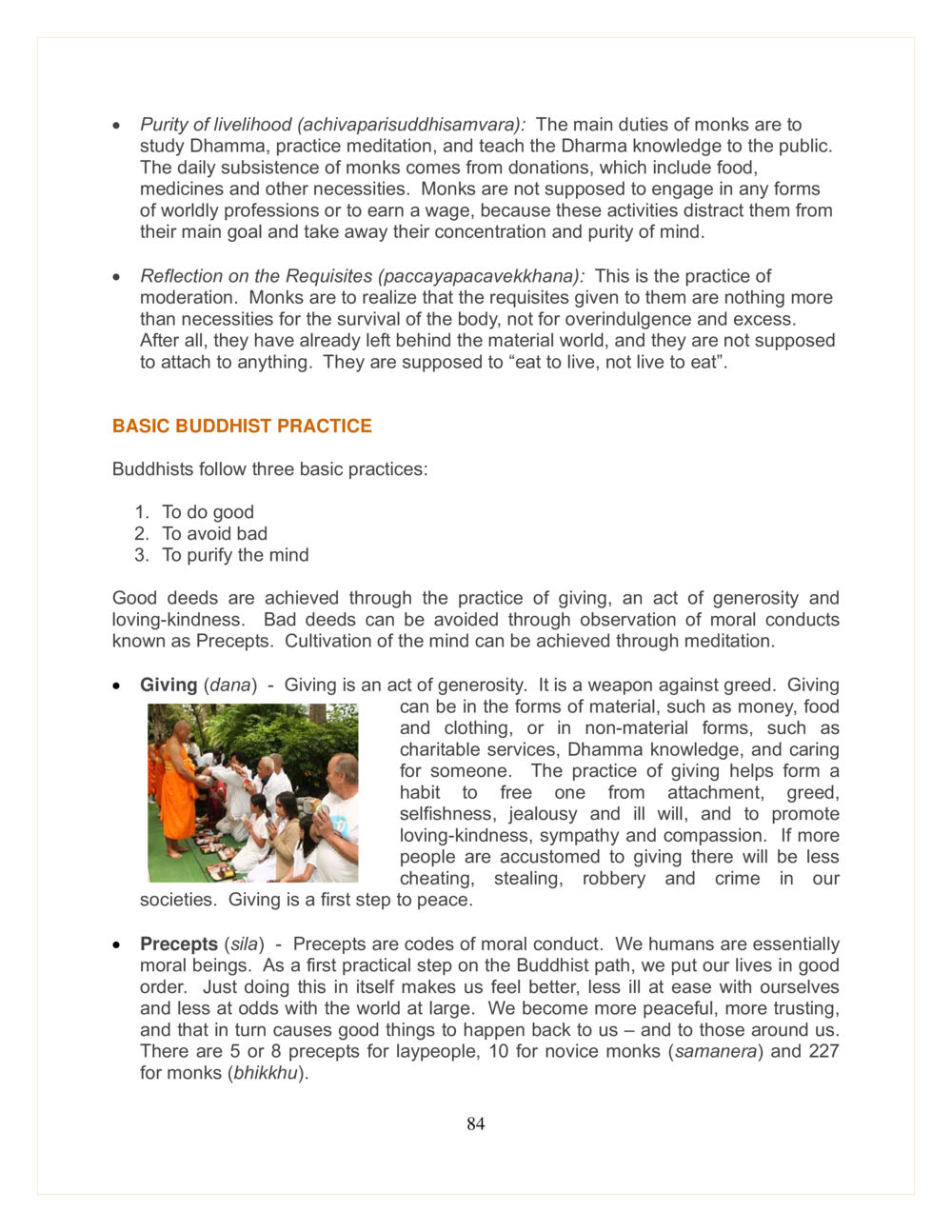The Core Principles of Buddhist Living : หน้า 84/115
DMC Translor’s handbook : หน้า 84/115 Explore the fundamental practices of Buddhism including purity of livelihood, moderation, and basic practices of giving, ethical conduct, and meditation.
0 ครั้ง

สรุปเนื้อหา
This text outlines the essential duties and practices of Buddhist monks focusing on livelihood, moderation, and core principles of Buddhism. Monks dedicate themselves to studying Dhamma, meditating, and teaching, relying on donations for sustenance without engaging in worldly professions. They practice moderation by seeing requisites as necessities rather than luxuries. Basic Buddhist practice revolves around three key principles: doing good through acts of generosity, avoiding bad by adhering to moral precepts, and purifying the mind via meditation. Giving is emphasized as a way to combat greed and promote peace, while precepts are moral guidelines that foster a sense of order and tranquility in life. The adherence to these practices not only aids personal peace but also contributes to harmonious communities.
หัวข้อประเด็น
-Purity of livelihood
-Moderation in requisites
-Basic principles of Buddhism
-Practice of giving
-Moral conduct and precepts
-Role of meditation



















































































































